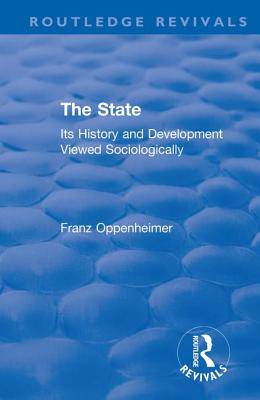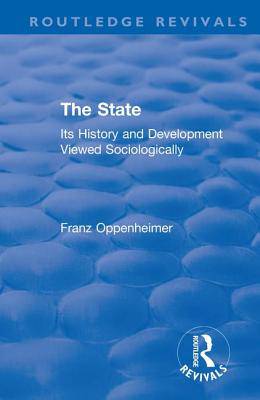
- Afhalen na 1 uur in een winkel met voorraad
- Gratis thuislevering in België vanaf € 30
- Ruim aanbod met 7 miljoen producten
- Afhalen na 1 uur in een winkel met voorraad
- Gratis thuislevering in België vanaf € 30
- Ruim aanbod met 7 miljoen producten
Omschrijving
A pioneering historical analysis of the state from a sociological perspective which focuses on the changing nature of political power and the groups who wielded this power. One of his key insights is the distinction between the economic and the political means of acquiring wealth.
This is the 1914 book that started it all in the 20th century, the book that kicked off a century of anti-state, pro-property writing. This was the prototype for Nock's writing, for Chodorov's work, and even the theoretical edifice that later became Rothbardianism.
Indeed, Franz Oppenheimer wrote what remains one of the most bracing and stimulating volumes in the history of political philosophy. The author sought to overthrow centuries of fallacious thinking on the subject of the state's origin, nature, and purpose, put its it place a view of the state that constitutes a foundational attack on the structure of modern society.
He utterly demolishes the social-contract view of the state as it had been advanced by most thinkers since the Enlightenment. He seeks to replace that view with a realistic assessment of the state, one that can only make anyone with statist leanings squirm: he sees the state as composed of a victorious group of bandits who rule over the defeated group with the purpose of domination and exploitation. It achieves its status through a form of conquest, secures its power through relentless aggression, and sees its main function is to secure its status and power.
Consider that when this book was written such views were a scandal, especially in Germany. Oppenheimer, who was a medical doctor who became a professor of sociology, suffered terribly for his libertarian views. Then this book appeared, which stunned even his most vociferous critics with its analytical rigor, historical sweep, and steely resolve. The book has since appeared in more than a dozen languages. In a world that cared about ideas, this would be required reading in political philosophy.
From an economic point view, his analysis holds up even where his language about capitalism and socialism can be somewhat confused. In fact, it was Rothbard's own work that took Oppenheimer's theory and fit it into a free-market framework. But to fully understand the state theory behind modern Austro-libertarian thinking, this work is indispensable.
Specificaties
Betrokkenen
- Auteur(s):
- Vertaler(s):
- Uitgeverij:
Inhoud
- Aantal bladzijden:
- 324
- Taal:
- Engels
- Reeks:
Eigenschappen
- Productcode (EAN):
- 9781138554245
- Verschijningsdatum:
- 18/10/2018
- Uitvoering:
- Hardcover
- Formaat:
- Genaaid
- Afmetingen:
- 129 mm x 198 mm
- Gewicht:
- 749 g

Alleen bij Standaard Boekhandel
Beoordelingen
We publiceren alleen reviews die voldoen aan de voorwaarden voor reviews. Bekijk onze voorwaarden voor reviews.











